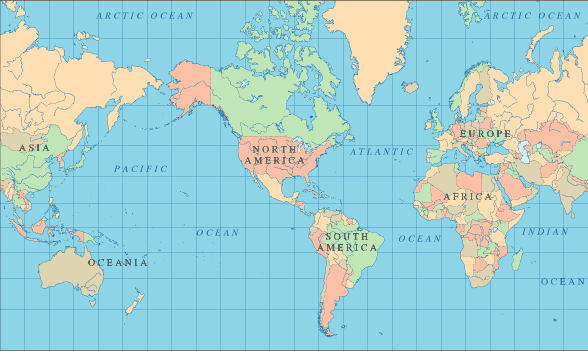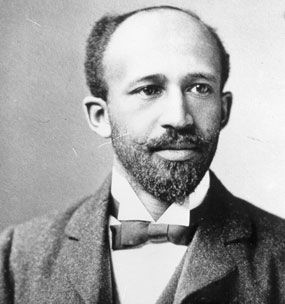Friday, December 31, 2010
Tuesday, December 21, 2010
Lunar eclipse
Publicado por
AOG
en
22:54
0
comentarios
![]()
Etiquetas: Comet, Eclipse, Lunar Eclipse, Solstice, Winter Solstice
Wednesday, December 15, 2010
FACEBOOK, and other maps
AOG, Madrid
China does much the same.
Countries like to see themselves first.
So narcissistic.
And at the top.
North good. South, bad.
Publicado por
AOG
en
19:00
0
comentarios
![]()
Etiquetas: Cartography, Facebook, Modern, Modern World, modernity
Monday, December 06, 2010
W I K I L E A K S
Publicado por
AOG
en
16:52
0
comentarios
![]()
Etiquetas: Arrest, Capital punishment, Couso Affair, crime, Death penalty, Digital, freedom of speech, government, Julian Assange, Rape, spain, Terrorism, US Government, Wikileaks
Wednesday, December 01, 2010
World Aids Day
Publicado por
AOG
en
16:12
0
comentarios
![]()
Etiquetas: AIDS, World Aids Day
Friday, November 26, 2010
Thanksgiving Thoughts 2010
This is a link to what I wrote about Thanksgiving last year.
Funny that both then and now I chose to mention the holiday.
Publicado por
AOG
en
19:31
0
comentarios
![]()
Etiquetas: Roberto Bolaño, Thank You, Thanksgiving Day
Tuesday, November 23, 2010
Of prayers and wishes
The last time I was in London, the lights were up on Oxford street.
However, Christmas always makes me think about those people who will have to "bear" the celebrations once more.
I am thinking about those people who will not be able to fully participate in the festivities.
People who wish they had the money to buy all the goodies on show.
I once read that the great American poet, Maya Angelou, said this about luck: "If one is lucky, a solitary fantasy can totally transform one million realities".
My partner buys me a ticket as a Christmas present. I think it is kind of nice that someone gives you as a gift the opportunity to acquire a lot of money.
It is easy to see that in time of despair, some of us detach our thoughts from our mundane lives and throw ourselves into the arms of fortune in the hope that, as Angelou wrote, a single fantasy will change one million realities.
We all want change, though we all fear it. Of course, the change we like is the change we can control. The change we work for and expect as the fruit of our toil and labor.
Yet I remember the eternal Chinese caveat: "Be careful what you wish for, it just might happen".
And lets not forget the great Spanish mystic, St. Teresa of Avila, who wrote: "More tears are shed over answered prayers than unanswered ones".
So, as per usual, we have something to fear from the unknown and we are warned, in both Chinese and Western cultures, not to want to change things too much. Not to ask for much.
Not to desire much, just in case. Just in case we get it.
And then what? Perhaps it is more about not wanting too much, and using fear to try and make us happier because, more than likely, our prayers won't be answered, and our wishes won't be granted.
Yet, even though this might be the case, we choose to envelop a little bit of knowledge, or mundane philosophy if you like, in transcendental ideas.
Is it that the Earthly world is just too real for us to cope with it fully?
I don't know.
All I know is that the year is coming to an end.
That 2010 will eventually be forgotten, for better or for worse. That I will pray and wish for change, and that nothing out of the ordinary will happen.
I will not wake up a millionaire from just wishful thinking.
Or from buying a lottery ticket.
Of course, I might just buy the winning number.
One never knows!
That is why we call it a game of chance.
The online dictionary defines the word thus: "The unknown and unpredictable element in happenings that seems to have no assignable cause."
No assignable cause.
Much like what is done when one prays. When one makes a wish.
Publicado por
AOG
en
22:43
0
comentarios
![]()
Etiquetas: christmas, Holiday Season, Lottery, Luck, Maya Angelou, St. Teresa of Avila, Unemployment
Wednesday, November 17, 2010
Work in progress
From the beginning of the modern era, the common man has been caught in between politics and technology, both of which have harmed and aided him in almost equal parts. The anonymity of the Middle Ages was swept away by the arrival of the modern state. Today, everywhere, Human Rights violations are the rule, rather than the exception.
Organisations such as the Red Cross have always sided with the common man, and have utilised technology in his/her favour. My personal motivation is to help out this Amazing organisation in the best way I know how: by distributing is message in the best possible way.
In our globalised society, where common people are increasingly challenging the "powers that be" by uploading images from a mobile phone, accessing the Internet and writing about abuses and crimes in their communities, I am convinced that we need a globalising and globalised message. And here the ICRC can be of great help. Ironically, man alone cannot face mankind.
One that brings not just hope, but help. As Leo Buscaglia wrote, "the opposite of love is not hate - it's apathy. It's not giving a damn".
Professionally, I have always believed that free speech is one of humanity's most basic rights. It is key to my work. Without it, my profession becomes a hoax.
Giving a voice to those that need help is a task much greater than I can achieve by myself. However, by working for the ICRC, the task is, though certainly not smaller, it is at least doable.
These are the reasons why I would welcome the chance to work for the ICRC, because it helps me to marry my professional and personal interests into one."
I don't know why I'm sharing this, but I thought I had to.
Publicado por
AOG
en
14:35
0
comentarios
![]()
Etiquetas: Human Rights, ICRC, Job, Mankind, work
Wednesday, November 10, 2010
Baby 2010
Publicado por
AOG
en
01:17
0
comentarios
![]()
Thursday, November 04, 2010
At least one other idiot
So my friend (Taurus) explained to the lady (inept) once again that he merely wanted to confirm that they had their names right. They are flying down to Uruguay for Christmas and New Years (And I so envy them!).
Again, she didn't listen to a word he said and just told him that if he wanted to prebook his ticket, he had to contact his agent.
Now, if you can read what my friend was saying, and you can read her replies, it is obvious that she wasn't listening to anything he was saying.
How often in life does that happen? I would venture that it happens quite a lot.
I now that very often I respond to what people say, but somehow, things get "lost in translation" from the time they leave the person's mouth to the time they reach my brain. They say one thing, and I hear another.
It is so easy to get confused. I often tell Madame Mère to listen to what I'm saying, and not to what she thinks I am saying. Sometimes it works, sometimes not.
However, I too do that.
I react to what I think is being said and not to what actually is being said. There is obviously a breakdown in communication. We hear, but we just don't listen.
And sometimes we don't care to listen because we think -and therein lies our error- that we know it all.
That we are possessors of the truth, or at least, our truth, subjective though it might be, we own nothing but that which lives in our heads, and we care very little for that which lives in the heads of others since, and we all know this to be true, we are always right.
What a great disservice to mankind, as well as to ourselves this is, isn't it?
The great Civil Rights leader W.E.B. Du Bois wrote, "Herein lies the tragedy of the age: not that men are poor, - all men know something of poverty; not that men are wicked; - who is good? not that men are ignorant, - what is truth? Nay, but that men know so little of men." And he was right.
We know very little about other people, even those close to us, but we also don't care to know anymore than what we do since we spend precious little time getting to know anybody these days.
Ever heard of speed-dating? You talk to someone for 5 minutes (or less) and them move on to the next person. Now I ask, can you be your fabulous self in just 5 minutes with 20 different people?
No, of course not. "Its a great way to meet new people!" they tell us. But it isn't. Not really.
I think that beyond a physical impression, little else will be retained by us. And after talking to 20 people, I think most men will agree, who will you go back for? The person who stimulated your brain the most, or the pretty face with the wicked smile and killer ass?
Exactly. So why pretend?
Facebook, Twitter, online chats, it is all so immediate, so quick. But I dare say that it was always like this. I don't think speed is responsible for our shortcomings. Perhaps it just made a bad situation worse.
And I do wish it were different. Personally speaking, I love it when I meet a like-minded person.
Why? Because they make you feel like you are not the only idiot in the Universe who thinks like you do. There is, at least, one other idiot like you!
Isn't it comforting to know that you are not the only one of your species?
And what better than getting to know someone you think you can learn something from?
Yes, I know that this is not always the case, but it would be folly to think that we can't learn something from everyone we meet in life. However small.
"One's mind, once stretched by a new idea, never regains its original dimensions," wrote the American XIX century writer Oliver Wendell Holmes. And how right he was.
In the end, after the lady in question hung up on him, exasperated as she was by all her effort, my friend called back, pressed #2, and spoke to a Spanish speaking operator who fixed his problem.
There's a lot to be said for manners and good customer service, but that is a post for another day.
Publicado por
AOG
en
11:20
0
comentarios
![]()
Etiquetas: Communication, Customer Service, Hear, Iberia, Listen, Misunderstanding, Oliver Wendell Holmes, telephone, W.E.B. Du Bois




























